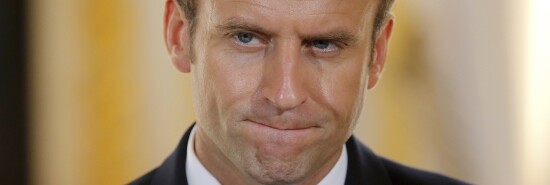
US should recall its ambassador if France gives China high-tech access
Tom Rogan
Video Embed
If France grants China investment access to its advanced aerospace or high-tech industries, especially in the field of Quantum computing, the United States should recall its ambassador to Paris and pursue retaliatory economic action. President Emmanuel Macron has set the precedent here.
In September 2021, France recalled its ambassador to Washington in protest at the AUKUS submarine deal. That deal saw Australia abandon its planned purchase of submarines from France in favor of nuclear submarines to be developed alongside the U.S. and the United Kingdom. France declared that the AUKUS surprise was “unacceptable between allies and partners.” Considering that AUKUS was announced without prior notice and that it cost France tens of billions in defense contracts, Paris had a legitimate grievance. But while Macron has already had some revenge via the United Arab Emirate’s decision to buy French military equipment instead of U.S. equipment, Washington has good reason to be concerned over Macron’s visit to China on Wednesday.
FINLAND’S SANNA MARIN LEAVES OFFICE WITH AMERICA’S THANKS
After all, Macron’s absolute priority for his three-day trip is to secure new trade deals. He has already made it clear that he’s not going to pressure President Xi Jinping on matters such as China’s political cover for Russia’s war in Ukraine. Indeed, it will be interesting to see how Macron responds, if at all, to any Chinese military reaction to the meeting between House Speaker Kevin McCarthy (R-CA) and President Tsai Ing-wen of Taiwan on Wednesday.
China clearly senses the French president’s desperate interest in keeping his hosts happy. In an interview on Tuesday, Beijing’s ambassador to Paris expressed the Chinese Communist Party’s “hope that France will also overcome third-party interference factors and actively provide Chinese companies with an open, fair, transparent and non-discriminatory business environment, especially in telecommunications and hi-tech fields.”
If the French want to give Chinese spies access to their 5G networks, that’s their prerogative. But Beijing’s push for access to France’s “high-tech fields” is worthy of American concern. France is investing heavily in areas such as Quantum Computing, Chinese access to which would provide Beijing with key opportunities for its military development. While France would very likely refuse China access to military-related quantum research, China is both exceptionally aggressive and capable in manipulating access to civilian technology for military purposes. Beijing’s access to advanced French aerospace or high-tech fields would assist the People’s Liberation Army in improving its means of waging war. Which wouldn’t be great for the U.S. amid the significantly increasing risk of a war over Taiwan.
Top line: The U.S. cannot quietly tolerate its oldest ally supporting, even if indirectly, the military development of its greatest present-day adversary. France is a sovereign democracy with every right to pursue whatever foreign policy it deems in its national interest. But the U.S. has that same right and shouldn’t be afraid to exercise it.
